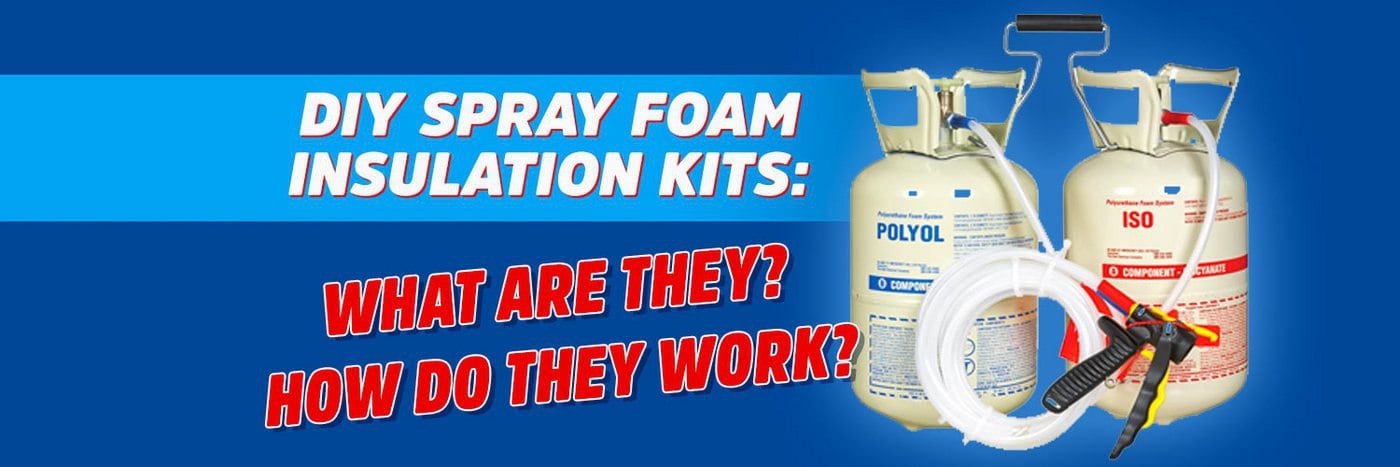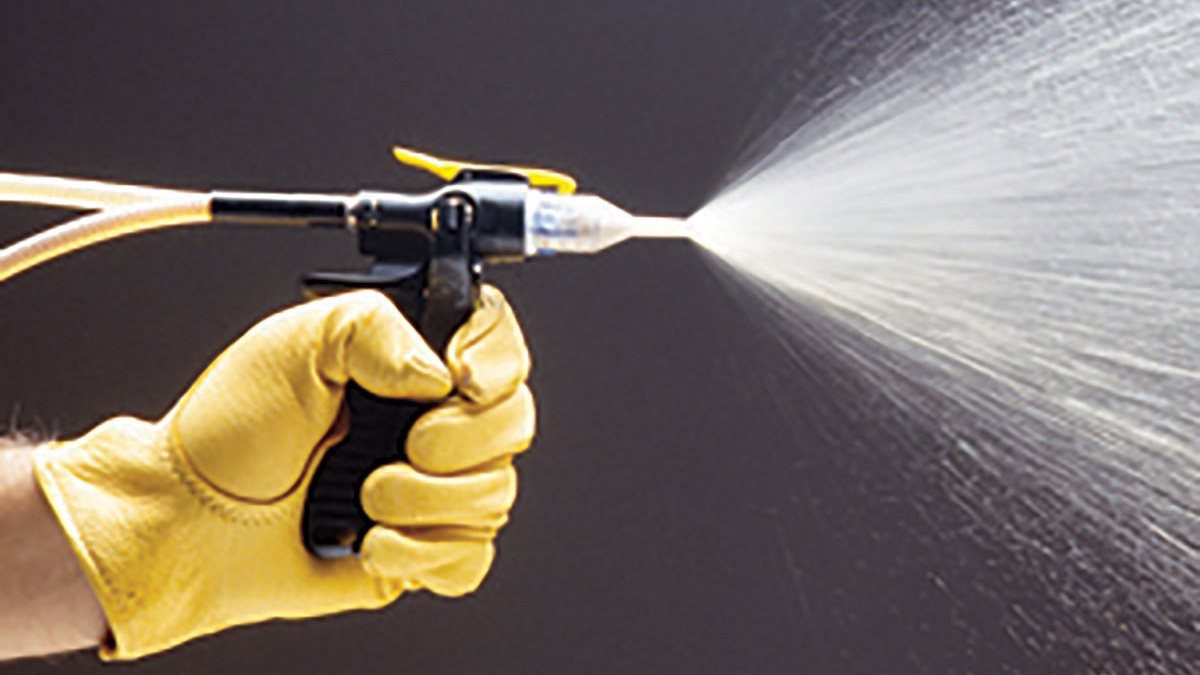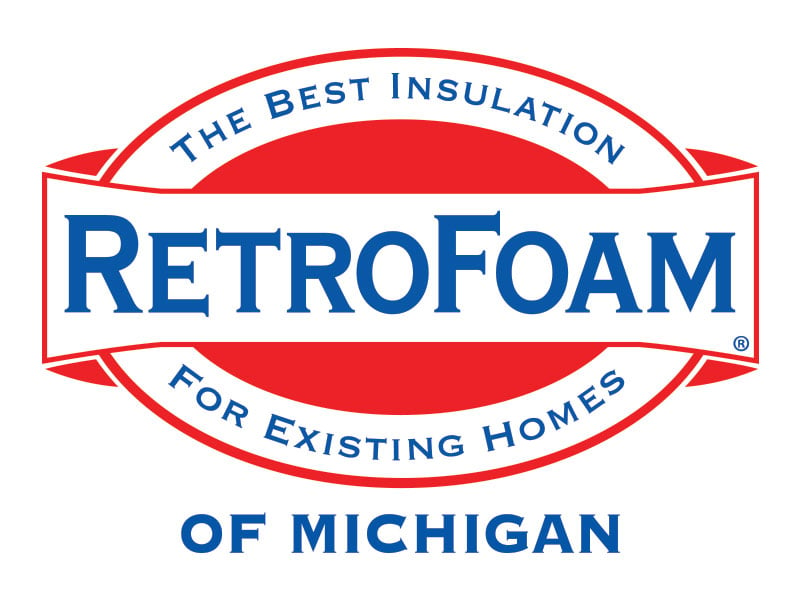DIY Spray Foam Insulation Kits: What are They? How Do They Work?


You know your home needs insulation and after researching the insulation options and materials available you think spray foam insulation is the way to go.
You heard about spray foam kits, and being somewhat handy around the house, you wanted to look into this DIY option further.
Low-pressure spray foam insulation kits can be used to insulate certain areas of your existing home. If you are an experienced homeowner, you can use the kits to insulate small areas of your home, like your rim joist or in some cases your crawl space. In most cases, spray foam kits are made to insulate around doors, headers around windows, or to fill in spaces if you change your cold air returns.
Larger spray foam kits can be used in areas like exposed walls and attics, but only for homeowners who know how to apply the material.
RetroFoam of Michigan has more than 15 years of experience working with foam insulation. While we don’t use or sell spray foam kits, we are the masters when it comes to all things foam insulation. We’ve also heard stories from customers who have used DIY kits.
In our continued efforts to educate homeowners on all things insulation, we have gathered the information you may find helpful when trying to decide if spray foam insulation kits are for your upcoming foam insulation project.
Can You DIY Spray Foam Insulation?
The quick answer to this question is yes, but doing your research first and knowing exactly how to install the material is the bigger question.
Spray foam is a superior insulation material, but it is demanding to apply to the surfaces you wish to insulate. You will have to follow the directions for the specific kit that you buy exactly so that you don’t install it incorrectly and don’t waste any product. The best option is to read over the directions before you even buy the kit so you know exactly what to expect.
Another thing to keep in mind is that the foam must be applied evenly. While an experienced contractor can make it look easy if you’ve never worked with the material before it can be a challenge. You must also ensure the foam is sprayed evenly because it expands so dramatically you need to control its depth so you don’t waste material.
What is a DIY Spray Foam Insulation Kit?
A DIY spray foam insulation kits, also known as a froth pack, in most cases are low-pressure polyurethane spray foam.
They come in various sizes and are usually a two-component quick set foam kits that come with foam, hoses, spray gun, and extra nozzles.
These DIY spray foam kits can be used to create an air seal in areas of your home if the foam is applied correctly.
How Do Spray Foam Insulation Kits Work?
In most two-component spray polyurethane foam kits, an “A” component and a “B” component are combined to produce a frothy mixture. This mixture will expand rapidly and chemically cure to form the foam material.
The “A” component and “B” component come in separate portable cylinders that connect by hoses to the spray gun, where the components mix.
What are Spray Foam Kits Made Of?

Not all foams are created equal because they don’t all have the same components.
Most kits on the market are a polyurethane spray foam. Depending on your project, you also have the choice of open cell spray foam or closed cell spray foam.
Open cell tends to be a lighter material that has high expanding capabilities. Closed cell is denser and has a minimal expansion rate.
Pros and Cons of Spray Foam Kits
There are a number of things that can go great when using a spray foam kit correctly, but if used incorrectly it can lead to a real mess.
Here is a list of the pros and cons of using a DIY spray foam kit.
Pros:
- Small jobs could be easy DIY projects. An experienced homeowner could install the DIY spray foam on their own for small projects with little difficulty.
- DIY spray foam kits are perfect for small areas. If you only need spray foam insulation in a very small area, a DIY spray foam kit is a great fit. Most contractors have a minimum charge, so it could save you money in the long run.
Cons:
- Foam can be very sticky. To keep from making a mess you will need to ensure you are spraying the foam in the area you intend it to be. You’ll need to wear coveralls with a hood, gloves, a face mask, and eye protection.
- The nozzle clogs quickly. You need to work without interruption. Any pause longer than 30 seconds will clog the nozzle and will require putting on a new one. If you take too long, the material can back up in the hose ruining the materials.
- The foam won’t stick. If the spray foam isn’t applied correctly it can fall away from the surface it was sprayed on. If the surface isn’t prepared or if it is wet, this can also happen.
- Problems with the material mixture. The problem isn’t always with the application – it can start before you even spray the foam on the wall. If the canisters aren’t hooked up correctly, then the material could be ruined while it sits in the tanks. If there is a backup of the material in the hose or the gun, then the remaining material in the tanks will be ruined.
RELATED: How to Remove Spray Foam from Skin
Where to Buy Spray Foam Insulation Kits
DIY spray foam kits made by Touch ‘n Foam, Dow, and Tiger Foam can be purchased at any home improvement store or online.
The cost varies greatly on the size of the kit purchased, so between $75 and $800 for the kits. This doesn’t include the cost of extra material to insulate a larger space or supplies needed for the installation process.
Learning More About Foam Insulation
Now that you have read up on DIY spray foam kits, you might be looking to increase your knowledge further on the benefits of foam insulation.
If you’d like to learn even more, check out the Learning Center on our website.
Related Articles
Who are the Best DIY Spray Foam Insulation Kit Manufacturers?
DIY Spray Foam Insulation Kit Problems
About Amanda Ringler
Amanda previously has worked as a breaking news and crime reporter, TV news producer, and editor in Flint and Detroit. Throughout her career as a journalist, she has won several awards from The Society of Professional Journalists - Detroit Chapter and the Michigan Press Association. As part of the RetroFoam of Michigan family, Amanda uses her experience as a journalist to write content that will help educate homeowners on the benefits of foam insulation. When Amanda isn’t writing, she’s spending time with her husband and rescued huskies. She also loves knitting, making art, cooking, and hosting dinner and a movie night for friends and family.

.jpg)
